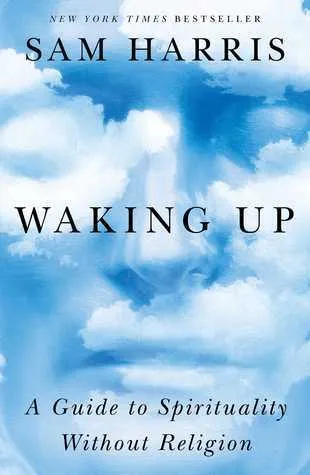
Spirituality must be distinguished from religion—because people of every faith, and of none, have had the same sorts of spiritual experiences. While these states of mind are usually interpreted through the lens of one or another religious doctrine, we know that this is a mistake. Nothing that a Christian, a Muslim, and a Hindu can experience—self-transcending love, ecstasy, bliss, inner light—constitutes evidence in support of their traditional beliefs, because their beliefs are logically incompatible with one another. A deeper principle must be at work.
Ceaseless change is an unreliable basis for lasting fulfillment. Realizing this, many people begin to wonder whether a deeper source of well-being exists. Is there a form of happiness beyond the mere repetition of pleasure and avoidance of pain? Is there a happiness that does not depend upon having one’s favorite foods available, or friends and loved ones within arm’s reach, or good books to read, or something to look forward to on the weekend? Is it possible to be happy before anything happens, before one’s desires are gratified, in spite of life’s difficulties, in the very midst of physical pain, old age, disease, and death?
Twenty percent of Americans describe themselves as “spiritual but not religious.” Although the claim seems to annoy believers and atheists equally, separating spirituality from religion is a perfectly reasonable thing to do. It is to assert two important truths simultaneously: Our world is dangerously riven by religious doctrines that all educated people should condemn, and yet there is more to understanding the human condition than science and secular culture generally admit.
The phenomenon of self-transcendence is generally sought and interpreted in a religious context, and it is precisely the sort of experience that tends to increase a person’s faith. How many Christians, having once felt their hearts grow as wide as the world, will decide to ditch Christianity and proclaim their atheism? Not many, I suspect. How many people who have never felt anything of the kind become atheists? I don’t know, but there is little doubt that these mental states act as a kind of filter: The faithful count them in support of ancient dogma, and their absence gives nonbelievers further reason to reject religion.
The feeling that we call “I” is an illusion. There is no discrete self or ego living like a Minotaur in the labyrinth of the brain. And the feeling that there is—the sense of being perched somewhere behind your eyes, looking out at a world that is separate from yourself—can be altered or entirely extinguished. Although such experiences of “self-transcendence” are generally thought about in religious terms, there is nothing, in principle, irrational about them. From both scientific and a philosophical point of view, they represent a clearer understanding of the way things are. Deepening that understanding, and repeatedly cutting through the illusion of the self, is what is meant by “spirituality” in the context of this book.
Although the experience of self-transcendence is, in principle, available to everyone, this possibility is only weakly attested to in the religious and philosophical literature of the West. Only Buddhists and students of Advaita Vedanta (which appears to have been heavily influenced by Buddhism) have been absolutely clear in asserting that spiritual life consists in overcoming the illusion of the self by paying close attention to our experience in the present moment.
And then there is death, which defeats everyone. Most people seem to believe that we have only two ways to think about death: We can fear it and do our best to ignore it, or we can deny that it is real. The first strategy leads to a life of conventional worldliness and distraction—we merely strive for pleasure and success and do our best to keep the reality of death out of view. The second strategy is the province of religion, which assures us that death is but a doorway to another world and that the most important opportunities in life occur after the lifetime of the body. But there is another path, and it seems the only one compatible with intellectual honesty. That path is the subject of this book.
It is surely a sign of intellectual progress that a discussion of consciousness need no longer begin with a debate about its existence. To say that consciousness may only seem to exist, from the inside, is to admit its existence in full—for if things seem any way at all, that is consciousness. Even if I happen to be a brain in a vat at this moment—and all my memories are false, and all my perceptions are of a world that does not exist—the fact that I am having an experience is indisputable (to me, at least). This is all that is required for me (or any other sentient being) to fully establish the reality of consciousness. Consciousness is the one thing in this universe that cannot be an illusion.
If anyone has a conception of meaning, morality, and value that has nothing to do with the experience of conscious beings, in this world or in a world to come, I have yet to hear of it.